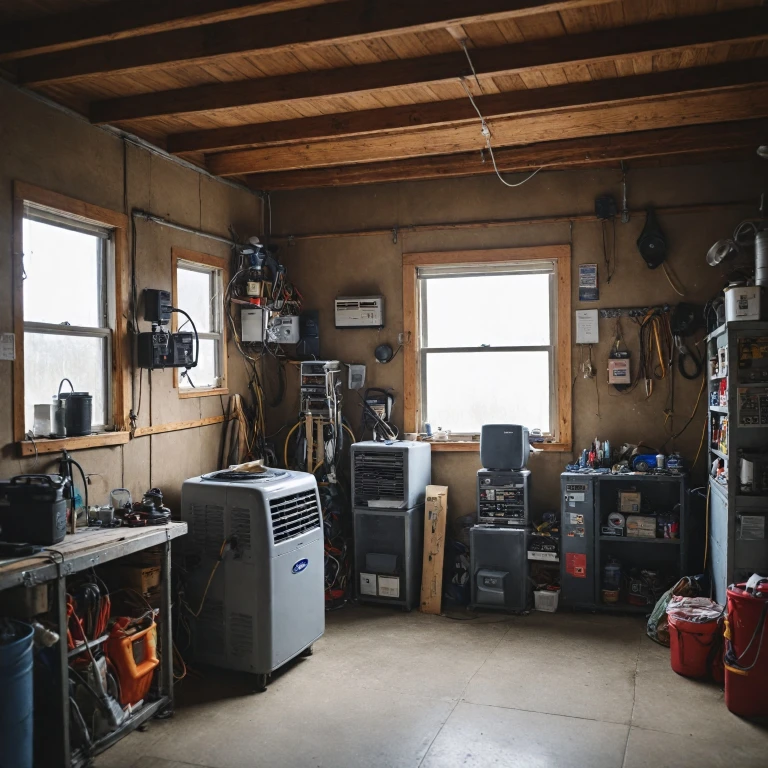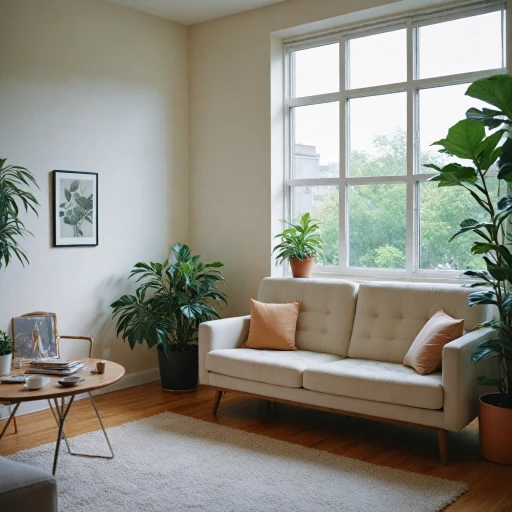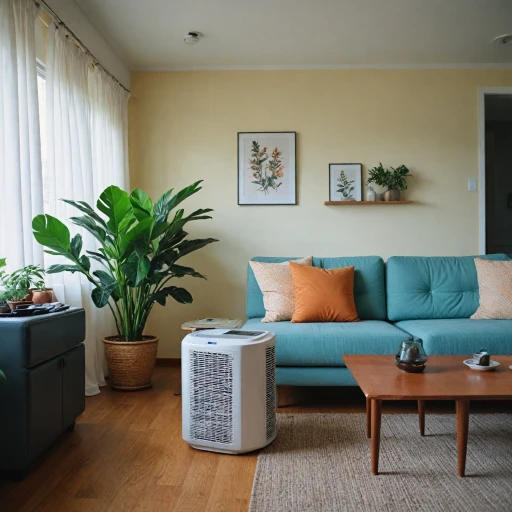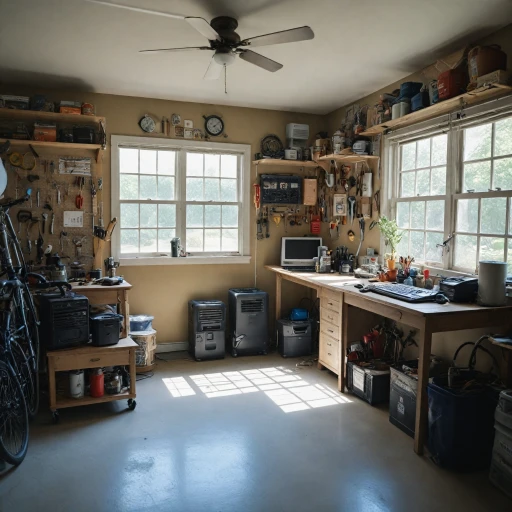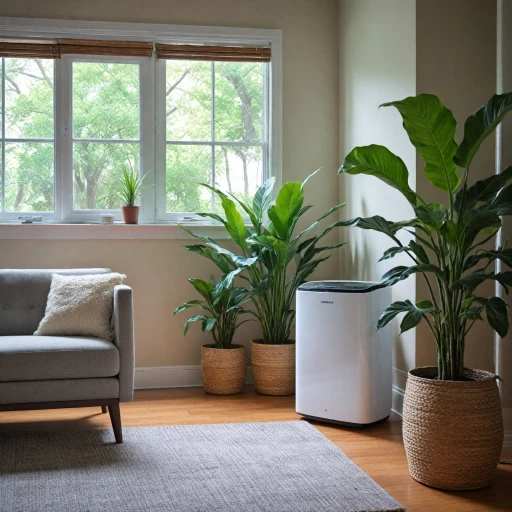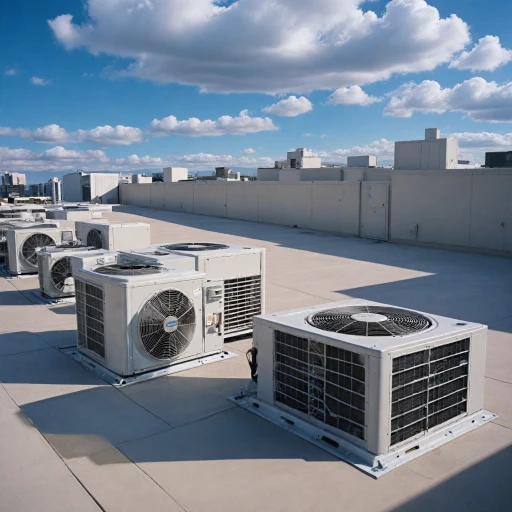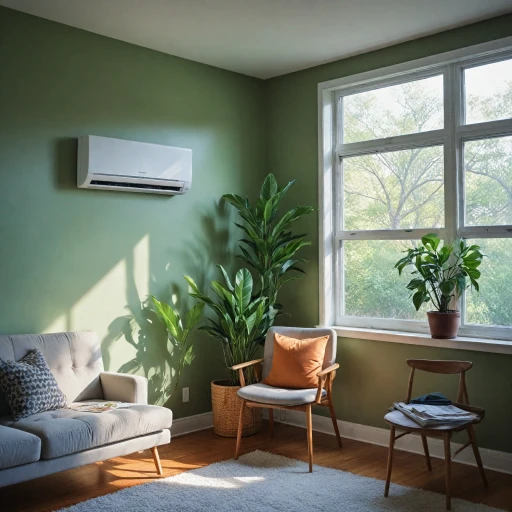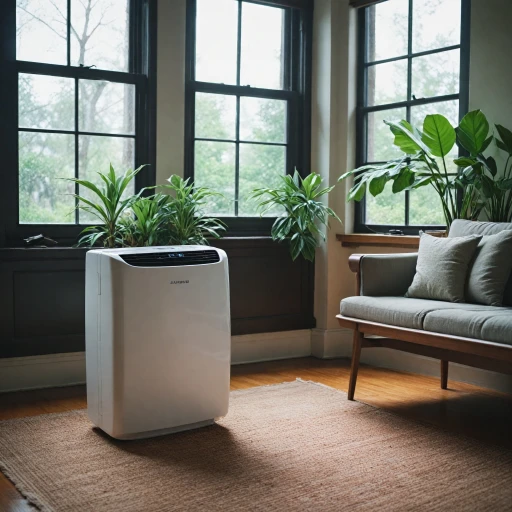
Understanding Garage Cooling Needs
Assessing Your Garage's Cooling Requirements
The cooling needs of a garage are often overlooked, yet they play a crucial role in ensuring comfort while at work or storing delicate items. A garage can trap significant amounts of heat, especially during the summer, making a suitable air conditioning solution vital. Unlike other spaces, garages have unique features, which create specific requirements for cooling. Firstly, consider the size of your garage. Smaller garages may benefit from compact portable units, while larger spaces could require a robust portable air conditioner for optimal performance. This is where understanding BTU (British Thermal Unit) ratings becomes crucial.- BTU Considerations: BTU rating helps gauge the cooling power of the unit. A higher BTU rating indicates greater cooling capacity, which is essential for hotter climates or larger garages.
- Room Usage: If you frequently utilize your garage for tasks such as hobbies or a workspace, additional cooling may be required to maintain comfort.
Key Features to Look for in a Portable AC
Essential Traits of a High-Performance Portable Air Conditioner
Choosing the best portable AC for your garage involves understanding some critical features that can significantly impact its performance and efficiency. With the right insights, investing in a garage air cooling system can be rewarding.
- BTUs: The Cooling Power Metric - The British Thermal Unit (BTU) rating of a portable unit indicates its cooling capacity. For a garage, you'll typically require a higher BTU capacity than you would in a regular room due to the unique heat challenges a garage presents. Opt for a model that provides enough output to efficiently cool your designated space.
- Energy Efficiency - Selecting a unit with high energy efficiency can save on electricity bills and reduce environmental impact. Look for units with an Energy Star rating for optimal efficiency.
- Space and Portability - Consider the available space in your garage. A compact and mobile portable air conditioner can be easily moved and positioned wherever it is needed most. Ensure it can fit near an appropriate outlet and isn't obstructed when in use.
- Ventilation Needs - Most portable air conditioners require ventilation through a window or a vented wall to expel hot air. Be sure your garage setup can accommodate these needs or explore mini split air conditioning solutions if permanent adjustments to the wall are feasible.
- Noise Levels - If you'll be spending a lot of time in your garage, the noise level of your portable AC is worth considering. Units with dual-hose systems such as those with ecoflow wave technology often operate more quietly.
Investing in a well-suited unit guarantees years of dependable service, maximizing your garage's usability. Refer back to the section on understanding cooling needs for a comprehensive look at matching a portable AC's capabilities with your space requirements.
Installation and Placement Tips
Efficient Setup for Optimal Performance
When setting up a portable air conditioner for your garage, proper installation and placement are crucial to ensure the unit operates efficiently and effectively. Here are some tips to help you get the best results:- Choose the Right Location: Place the portable AC unit near a window or wall opening to vent the hot air effectively out of the space. This setup prevents the machine from recycling the warm air it's attempting to expel, thus improving its cooling efficiency.
- Secure the Exhaust Hose: Install the exhaust hose securely to ensure it's not leaking hot air back into the garage. Make sure the hose is as straight and short as possible to avoid airflow resistance, which can hamper cooling performance.
- Consider Window Units or Mini Splits: For larger garages, adding window air conditioners or mini-split systems could provide additional support. These types of cooling systems might augment the portable unit's effectiveness, particularly in spaces with poor insulation.
- Avoid Obstructions: Position the air conditioner in a way that allows sufficient airflow around the unit. Blocking the intake or exhaust with clutter or placing the unit in a corner might reduce its capability to cool the room effectively.
- It's All About BTUs: Ensure the air conditioner has enough BTUs to cover the garage's square footage. A unit with too few BTUs won't cool well, whereas one with too many could lead to energy inefficiency.
Maintenance and Care for Longevity
Maintenance Essentials to Keep Your Portable AC Running Smoothly
Regular maintenance of your portable air conditioner is crucial for ensuring its efficiency and longevity, especially when it's placed in a garage where dust and heat can affect its performance. By following a few simple maintenance tips, you can keep your unit in top shape, thus maximizing its cooling potential and energy efficiency.- Regular Cleaning: It's vital to clean the air filters of your portable AC frequently. Dust and debris can accumulate on the filters, hindering airflow and reducing cooling efficiency. Most portable units have washable filters, so make it a habit to clean them every few weeks during the peak garage use season.
- Condenser and Evaporator Coils: The condenser and evaporator coils need regular attention too. These parts, crucial for the heat exchange process, tend to gather dust over time, especially in a garage setting. Periodically check and clean these coils to prevent any cooling performance issues.
- Drain and Empty Water Collection Trays: Portable ACs often come with water collection trays due to condensation. Ensure these trays are emptied regularly to prevent overflow which can lead to water damage or mold growth. Some units have auto-evaporation systems that require less manual intervention.
- Inspect and Secure Vents and Ducts: Make sure that all the vents and exhaust ducts are tightly secured and free from obstructions. Proper venting is crucial for efficiently expelling hot air out of the garage.
- Schedule Professional Check-ups: Even if the portable unit seems to be running well, it's wise to schedule periodic maintenance checks. Hiring a professional ensures that all components, including the compressor and electrical parts, remain in optimal condition.
Comparing Popular Models
Top Portable AC Models for Garage Cooling
When selecting a portable air conditioner for your garage, it’s essential to compare different models to find the best fit for your space. Consider the size of your garage and the heat it retains, as this will determine the BTU capacity needed for effective cooling. Below are some popular portable units that are well-suited for garage spaces:
- EcoFlow Wave: Known for its energy efficiency and portability, this unit is ideal for smaller garages. It offers a compact design without compromising on cooling power.
- Frigidaire 15,000 BTU: A robust choice for larger garages, this model efficiently cools expansive areas. It's a great option if your garage frequently experiences high heat levels.
- Whynter Dual Hose Portable Air Conditioner: This unit is perfect for those seeking quick cooling. The dual hose system enhances cooling efficiency by expelling hot air while bringing in fresh air.
- Black+Decker BPACT08WT: A budget-friendly option that offers reliable performance for medium-sized garages. It's easy to install and maintain, making it a popular choice among homeowners.
These portable air conditioners vary in features and price, so it's crucial to assess your specific needs. Consider the energy efficiency of each model, as this will impact your electricity bills over time. Additionally, think about the installation and placement tips discussed earlier to ensure optimal performance.
Incorporating a portable AC into your garage will not only make the space more comfortable but also protect any equipment or items stored there from excessive heat. Choose wisely to enjoy a cool, efficient garage environment.
Energy-Saving Tips for Garage Cooling
Maximizing Efficiency in Your Garage Cooling
When it comes to cooling your garage efficiently, energy-saving techniques are essential. Not only do they help reduce electricity bills, but they also contribute to a more sustainable environment. Here are some tips to ensure your portable air conditioner works at its best:
- Choose the Right BTU: Selecting a portable unit with the appropriate BTU rating is crucial. A unit that's too powerful will waste energy, while one that's too weak won't cool the space effectively. Refer to your garage's size and cooling needs to find the best match.
- Proper Placement: Ensure your portable air conditioner is placed in a spot where it can circulate air efficiently. Avoid placing it near walls or obstacles that can block airflow. This will help the unit cool the room more effectively without overworking.
- Seal Openings: Check for any gaps or openings in the garage, such as around windows or doors. Sealing these can prevent hot air from entering, allowing your air conditioner to maintain a cooler environment with less effort.
- Use a Window Kit: Many portable units come with a window kit that helps vent hot air outside. Make sure this is properly installed to ensure optimal performance.
- Regular Maintenance: Keep your portable AC well-maintained by cleaning filters and checking for any blockages. A clean unit operates more efficiently and consumes less energy.
- Consider a Heat Pump: If you're looking for a versatile option, some portable air conditioners come with a heat pump feature. This allows for both cooling in the summer and heating in the winter, maximizing year-round energy efficiency.
By implementing these strategies, you can ensure your portable air conditioner operates efficiently, keeping your garage cool without unnecessary energy consumption.

